"The residents have adapted the rooms to meet their needs. They have used the grave markers as desks, and shelves. They have hung strings between gravestones for their laundry to dry out. “We have brought in the electricity by wires over the roofs coming from the nearby mosque to be able to be able to live properly,” said Zaki. The City of the Dead seems to its inhabitants ideal because it is already built, affordable, and partially equipped. However there are many disadvantages of living there. “They are joined by even a greater number of cockroaches, mosquitoes, flies, and vermin of all sorts", writes Nedoroscik in The City of the Dead, A History of Cairo’s Cemetery Communities. The rooms are also filled with the overwhelming smell of the garbage piled outside their doors and sewage leaking out of the un-drained tanks. In addition, “The residents settling in the City of the Dead are insecure about their living status because they are living there against the law,” said Yakan."
It's probably the most tourist-visited slum since it's home to some mosques and mausoleums that are worth seeing, with some great examples of Mamluk architecture (Thank you Wikipedia! I can't seem to keep the Fatimids, the Abbasids and the Mamluks straight.)
Mausoleums.
These kids were flying kites.
I'm loving these pigeon hutches.
This was a super swank pigeon hutch- several stories high.
This was a glass blowing factory. It was incredibly hot inside.
Once it cooled, this was a greenish blue vase.

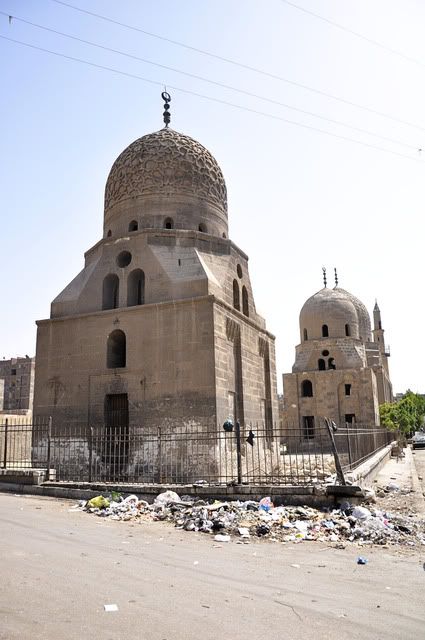
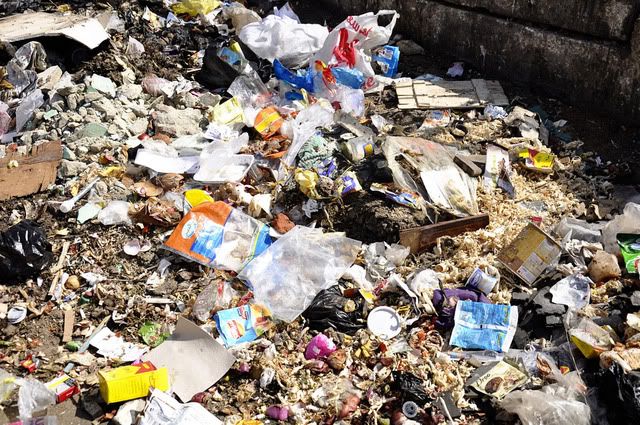
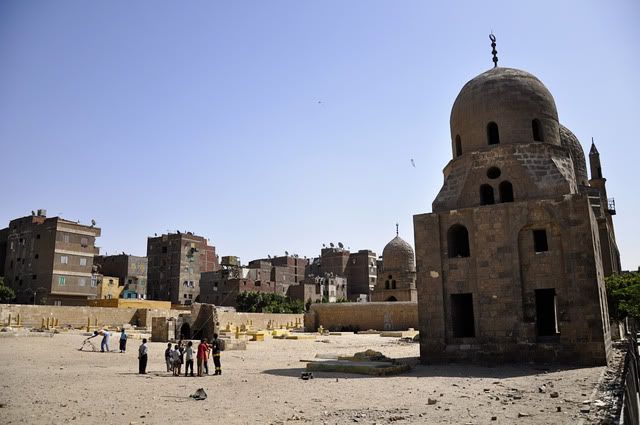
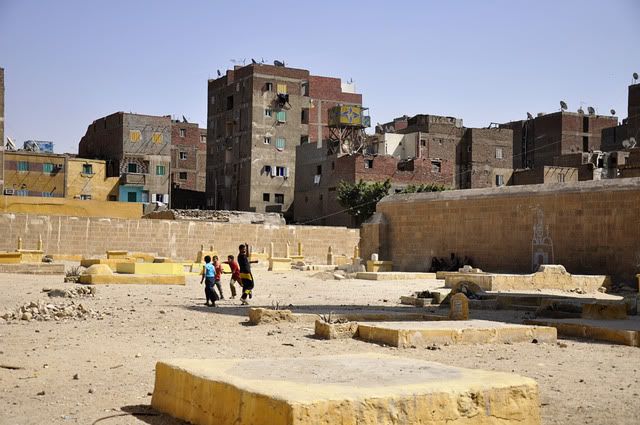
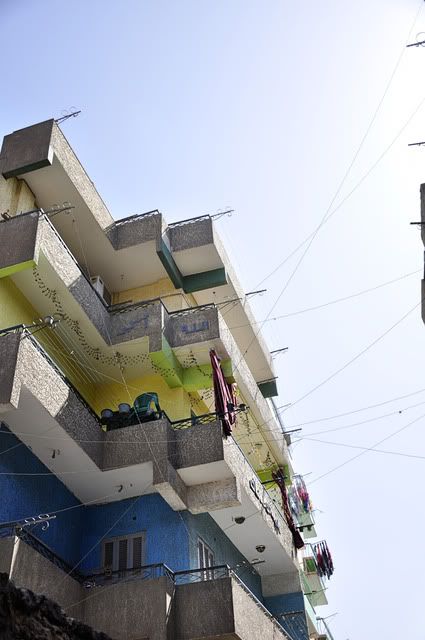
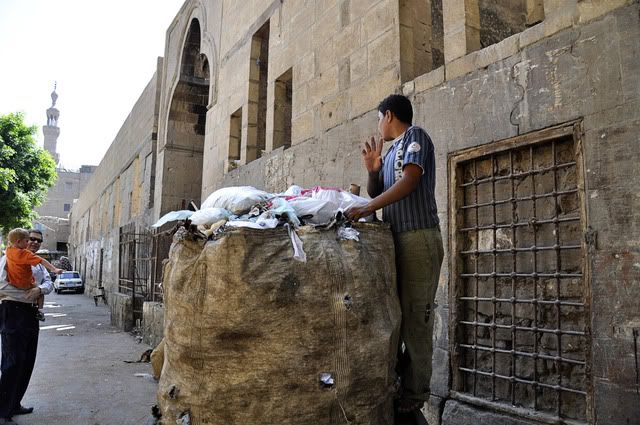
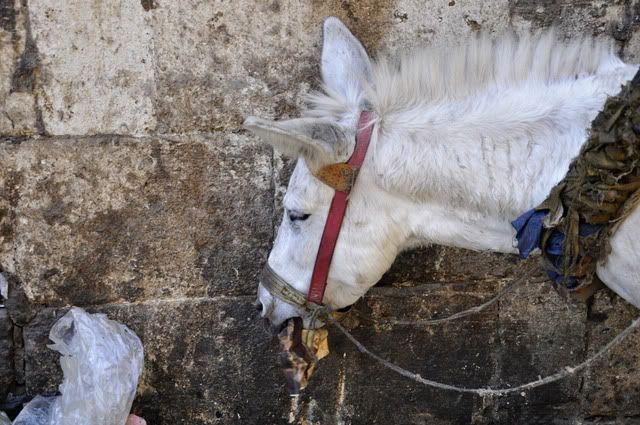
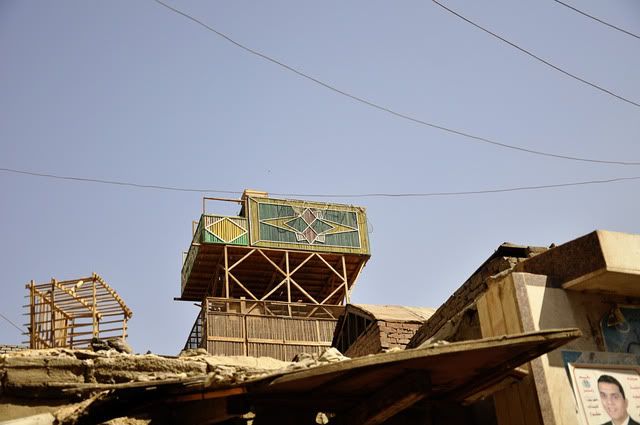
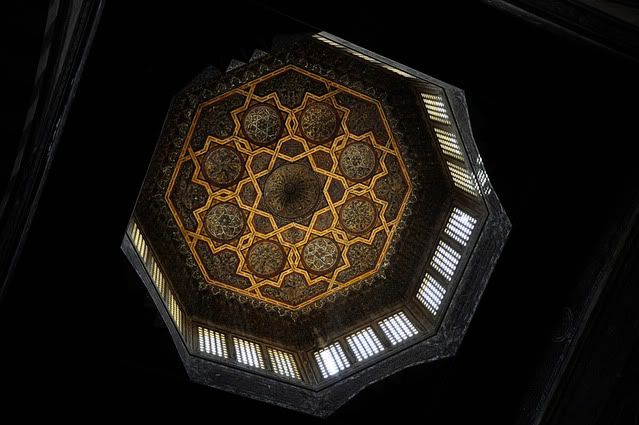
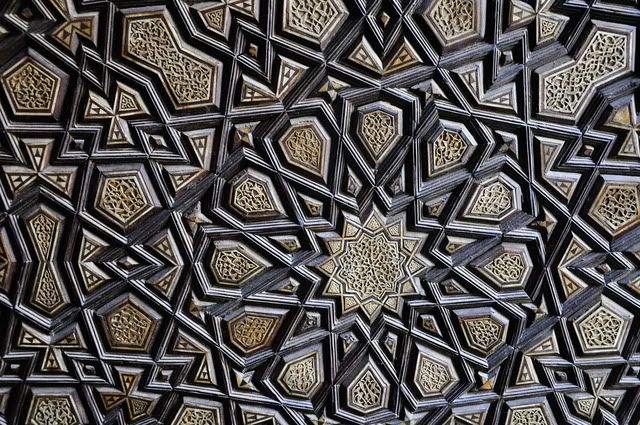
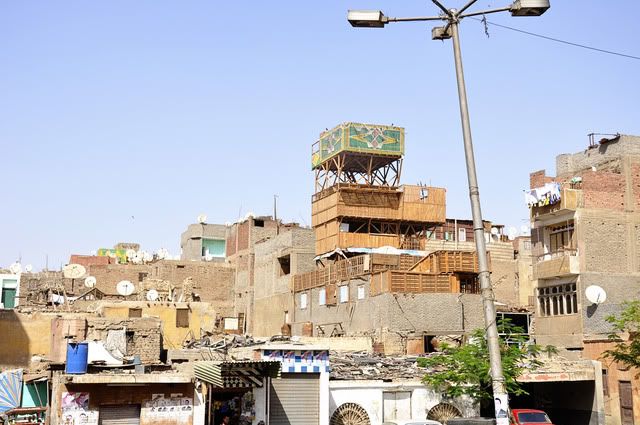
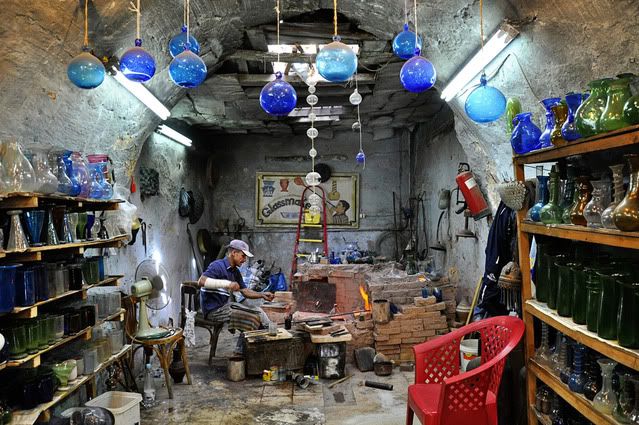
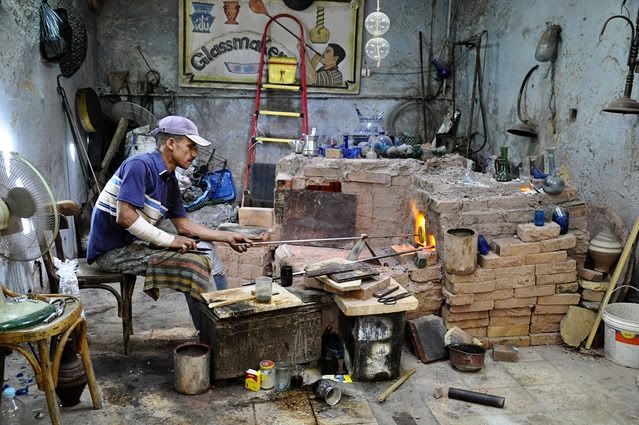
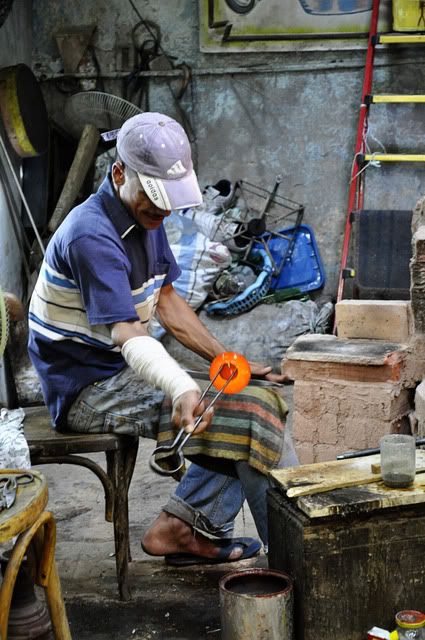
1 comment:
Seems like there is an undercurrent of bad sanitation management throughout Cairo. They really just need to hire a few more garbage men;)
Post a Comment